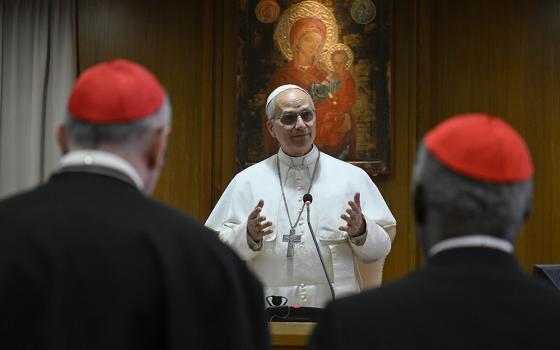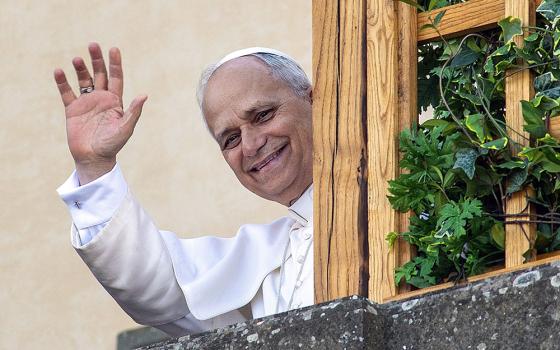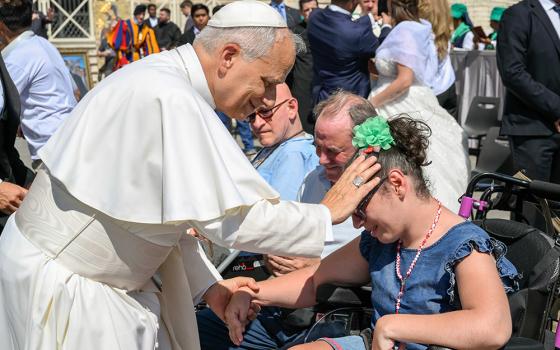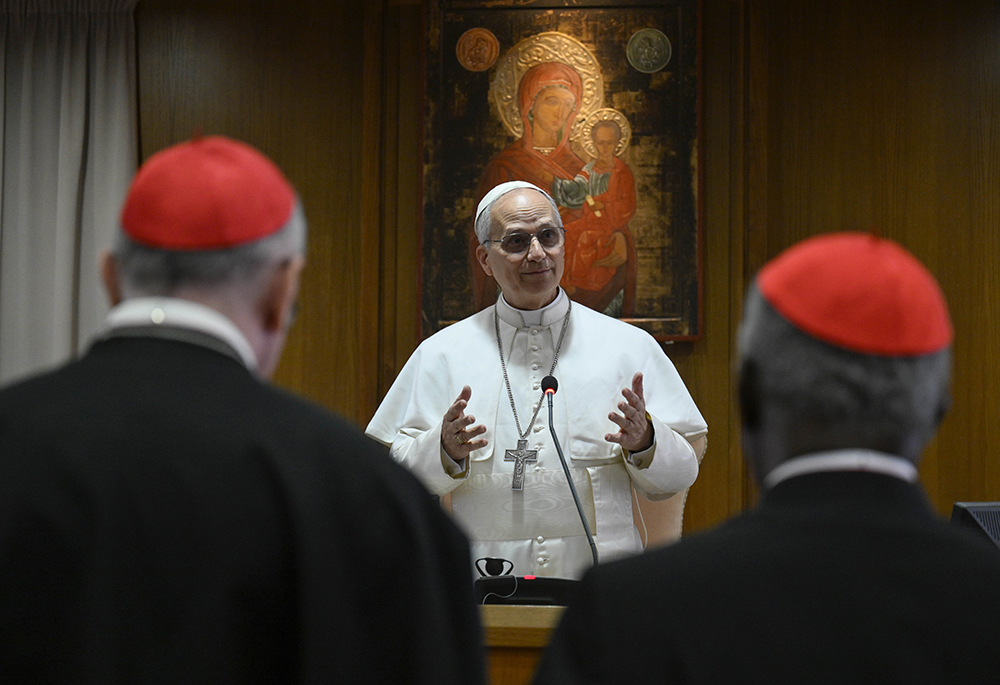
Pope Leo XIV speaks with the College of Cardinals in the New Synod Hall at the Vatican May 10, 2025, during his first formal address to the college since his election May 8. Leo spoke to the cardinals about choosing the name Leo XIV. (CNS/Vatican Media)
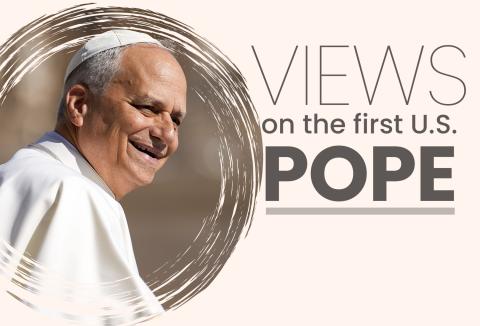
As a longtime investor in artificial intelligence technologies, I have been in the front roller coaster car at the edge of digital innovation — an exhilarating and queasy ride that, until recently, seemed theoretical and futuristic to most.
But now, in just a few short years since AI tools were made broadly available to the general public, people are rapidly climbing aboard. With simple AI prompts, they are writing work memos, news articles and even church sermons in voices to mimic their own. Deepfake videos blur the line between reality and fabrication — some absurd (babies and dogs hosting a podcast), others dangerously convincing.
One man famously programmed AI to sort through potential dates, and he eventually proposed to the algorithm's pick. The slope is slipping fast, and with it, we risk surrendering our personal expression, decision-making and ultimately, our sense of self. Our humanity is being rapidly challenged by untethered liberty.
That's why I was deeply moved when Pope Leo XIV said he chose his name "mainly because Pope Leo XIII, in his historic encyclical Rerum Novarum, addressed the social question in the context of the first great industrial revolution. In our own day, the church offers to everyone the treasury of her social teaching in response to another industrial revolution and to developments in the field of artificial intelligence that pose new challenges for the defense of human dignity, justice and labor."
AI should not be the end of our discernment but the beginning of an important human purpose. We have the immense opportunity — and immense responsibility — to develop and use AI not only for the good of the world, but for the growth of our own moral and spiritual lives.
In this dizzying moment, we should remember: The sun rises and the sun sets; then it presses on to the place where it rises. We can turn to the voices that have guided us through upheaval before. How fitting, then, that Leo XIV has brought forth the wisdom of Leo XIII into our digital age.

Pope Leo XIV is pictured in a photo taken June 4, 2025, alongside an illustration of artificial intelligence. (CNS/Lola Gomez, Reuters/Dado Ruvic)
In his encyclical Libertas, Leo XIII wrote: "Such, then, being the condition of human liberty, it necessarily stands in need of light and strength to direct its actions to good and to restrain them from evil. Without this, the freedom of our will would be our ruin."
Leo XIII understood that liberty unmoored from truth — no matter how well-intentioned — can lead to confusion, harm and a loss of human purpose. Likewise, as we increasingly lean on AI to make decisions or generate content for us, we risk falling into the very pattern he warned against: mistaking capability for wisdom, and innovation for inner growth.
Even more, the liberty that AI offers is not liberty for us personally. As Leo XIII also wrote in Immortale Dei: "So, too, the liberty of thinking, and of publishing, whatsoever each one likes, without any hindrance, is not in itself an advantage over which society can wisely rejoice. … Liberty is a power perfecting man, and hence should have truth and goodness for its object."
Advertisement
We can be the "light and strength" Leo XIII spoke of, and actively direct how AI is designed, deployed and used for good.
After all, for Catholics and others shaped by spiritual traditions, we are uniquely positioned. As educators, we can help students discern truth when reality seems uncertain. As technologists, we can build with integrity and humility. As ethicists and theologians, we can inject moral imagination into innovation. As parents, we can model wisdom and restraint in how we, and our children, use these tools. And as citizens and community leaders, we can advocate for AI policies that uphold dignity, justice and the common good.
So let's not meet this moment with fear, or shrug it off as something beyond us. Let's meet it with open hearts, clear eyes and courage. The future may be rushing toward us, but we don't have to rush with it. We can move with purpose, anchored by our values and alive to the possibilities ahead.





